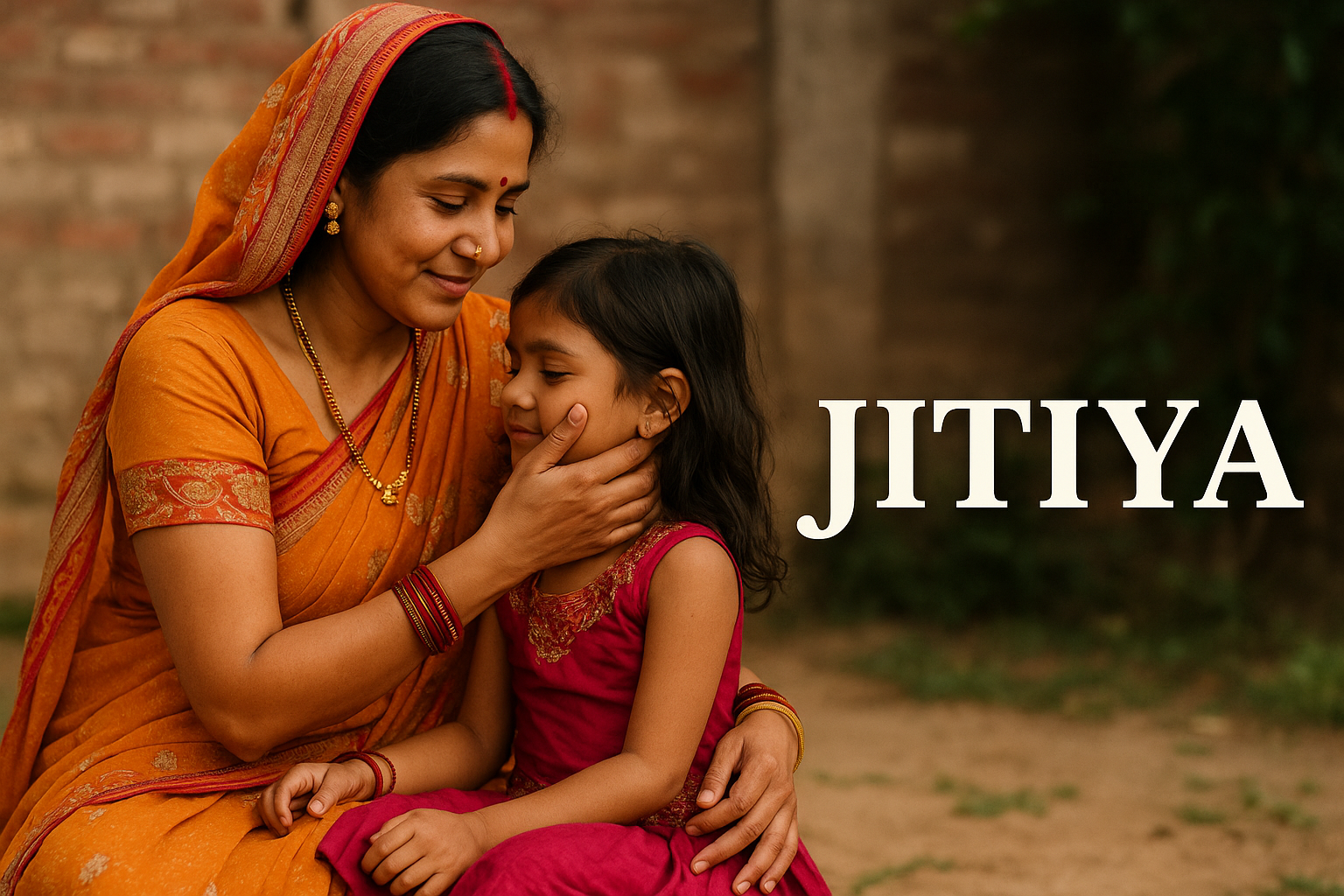✨ Jitiya (Jivitputrika Vrat): A Sacred Celebration of Motherhood and Devotion 🌸
Jitiya festival, a celebration of maternal love and prayers for children's well-being. Explore rituals, significance,this revered Hindu festival
Jitiya festival, a celebration of maternal love and prayers for children's well-being. Explore rituals, significance,this revered Hindu festival

In the vibrant tapestry of Ancient Indian festivals, one ritual stands out with profound maternal devotion — Jitiya (Jivitputrika Vrat) 🌸. Celebrated predominantly in Bihar, Jharkhand, Uttar Pradesh, and Nepal, this ancient observance symbolizes a mother’s eternal prayer for the well-being and long life of her children. 🧡
As we explore the depth and beauty of Jitiya, we'll see how this tradition continues to inspire countless generations, deeply rooted in faith, resilience, and love. 💫
Jitiya traces back to the times when faith and rituals were inseparable from daily life. 🌿 The Vrat is associated with mythological stories from the Mahabharata and other ancient scriptures, where maternal devotion was considered the supreme virtue.
Legend says that this Vrat was first observed when mothers prayed fervently to protect their children from the perils of life, offering selfless devotion to invoke divine blessings. 🙏
The connection to ancient traditions makes it an essential part of India's rich cultural history, linking closely with other beautiful observances such as Ancient Festivals of India. 📜✨
Jitiya is observed during the Krishna Paksha Ashtami (eighth day of the waning moon) of the Ashwin month (September–October) according to the Hindu calendar 📅.
In 2025, the celebration of Jitiya will be filled with prayers, fasts, and traditional rituals, deeply bonding mothers and their children with divine grace. 🌟
The word Jivitputrika translates to “living son.” 🌱 This underscores the heartfelt wish of every mother for the prosperity, health, and longevity of her child.
✨ Key Significances:
Maternal Devotion: The ultimate display of a mother’s selfless love. ❤️
Spiritual Purification: Observing strict fasting and prayers purifies both body and soul.
Cultural Preservation: Passing the values of family, tradition, and spirituality to future generations. 📖
Women Empowerment: Highlighting the strength, endurance, and devotion of women.
A day before the fast, mothers take a holy bath 🛁 and consume a single meal after offering food to deities.
This ritual is known as Nahai-Khai.
Mothers observe a strict Nirjala Vrat (fast without water) for the entire day. 💧🚫
Some women stay awake through the night, singing traditional songs and hymns.
Using mud and natural colors, they draw a symbolic image called the Jeev-Mudra, representing the wish for vitality and life.
Jimutavahana, a mythological figure, is worshiped. 🛕
He symbolizes sacrifice and the protection of life, which resonates with the Vrat’s theme.
After offering prayers at sunrise on the third day, the fast is broken with traditional dishes and shared with family members. 🥘
The soul of Jitiya lies in the story of Jimutavahana, a prince who offered himself to save Nagas (serpent beings) from being sacrificed. 🐍
This selfless act became a beacon of hope and protection, inspiring mothers to observe the Jitiya Vrat with devotion, asking for similar protection over their beloved children. 💖
Post-fast celebrations are incomplete without delicious traditional dishes! 😋
Jhor-Bhat (Rice with vegetable curry)
Marua (Ragi) Roti 🫓
Vegetable stews
Kharna special sweets 🍬
These simple yet nutritious dishes reflect purity and are integral to the celebration.
Mothers sing folk songs and narrate ancient stories during the fasting night. 🪕🎶These traditions strengthen the community bonds and pass on the rich culture to young generations.
While Bihar and Uttar Pradesh observe it traditionally, Nepal too celebrates Jivitputrika Vrat with immense fervor. 🌏
In every home, temple, and community, the same heartfelt prayer echoes:"May our children live long, healthy, and prosperous lives!" 🧿
Just like Jitiya celebrates bonds of love and protection, the festival of Raksha Bandhan beautifully glorifies the sibling bond. 👫💫Both festivals reflect the core Indian value of cherishing relationships and praying for each other's wellbeing.
In today's fast-paced world, festivals like Jitiya remind us to pause, reflect, and appreciate the most precious relationships in our lives. 🌍❤️
It reinforces faith in unseen divine forces.
It brings families together, strengthening emotional bonds.
It preserves ancient wisdom, keeping our rich culture alive for future generations.
“"God could not be everywhere, and therefore he made mothers." 👩👧👦"A mother's prayers can move mountains and calm storms." 🌸”
Jitiya (Jivitputrika Vrat) is much more than a religious observance — it's a celebration of life, love, and timeless maternal devotion. 🌼✨
In an era where ancient wisdom often fades, traditions like Jitiya stand tall as reminders of the power of faith, sacrifice, and unconditional love. 🧡
As we continue to honor such festivals, we ensure that the future generations inherit not just rituals, but the profound values that build a compassionate and connected world. 🌎🙏
Writer and content creator
Log in to share your thoughts and engage with other readers.